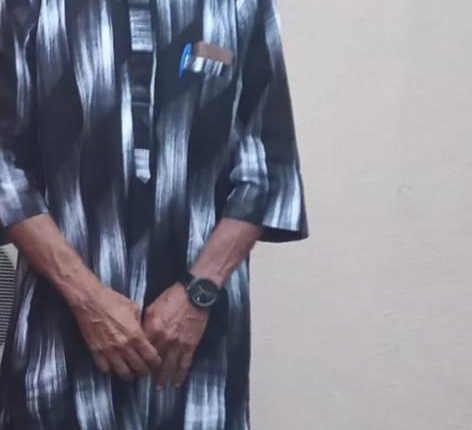Palm oil to aviation fuel: Nigeria’s Felix Oragwu, Ogbunigwe maker achieved feat 56 years ago
...As Indonesia makes first commercial flight using palm oil-blended jet fuel
Maureen Aguta
As the high cost of aviation fuel hits the global aviation industry, the world recently celebrated Indonesia as it makes its first commercial flight using palm oil-blended jet fuel.
Indonesia on Friday flew its first commercial flight using palm oil-blended jet fuel, as the world’s biggest producer of the commodity pushes for wider use of biofuels to cut fuel imports.
Operated by flag carrier Garuda Indonesia, the Boeing 737-800NG aircraft carried more than 100 passengers from the capital Jakarta to Surakarta city about 550 kilometres (342 miles) away, Garuda Indonesia CEO Irfan Setiaputra said.
The palm-oil blended jet fuel is produced by Indonesian state energy firm PT Pertamina at its Cilacap refinery, using hydroprocessed esters and fatty acid (HEFA) technology and is made of refined bleached deodorised palm kernel oil.
However, Advocacy Times can report that use of Palm oil for powering jet airplanes was one of the many other technological feats achieved 56 years ago by Professor Felix Oragwu-led Biafra Research and Production (RAP) during the Nigeria-Biafra civil war.
His team was also responsible for the manufacturing of Biafra’s lethal Ogbunigwe.
Professor Oragwu later served Nigeria in different capacities after the civil war before his retirement from the public service in 1987.
Professor Oragwu is a Nuclear Physicist, educated at Christ the King College (CKC) Onitsha, Nigeria, the Universities of Glasgow in Scotland, School of Graduate Studies, Physics Department (Research), University of Toronto, Ontario, Canada and Physics Department (Research), University of Manchester, in England respectively.
He began his teaching career as University Lecturer in Physics, at the University of Nigeria, Nsukka (UNN), in 1960s before the Nigerian Civil War of 1967-1970. During the Civil War he served as the Head Research Planning / Coordinator Technological Services of the Science and Technology (S&T / RAP) Group that operated the technological aspects of the Industrial War Machine in Biafra from1967 / 1970.
After the War, he resumed lecturing and research in Physics at UNN before being invited by the Nigerian Federal Government to serve for two years in the first instance before returning to UNN as Pioneer Principal Scientific Secretary / Chief Scientist to the newly created Nigerian Council for Science and Technology (NCST) located at the seat of the Federal Government in Lagos from 1972-1976.
In 1977 he was appointed Pioneer Director, Industrial Research and Technology and subsequently Pioneer Director, Science and Technology Planning and Development to the newly created National Science and Technology Development Agency (NSTDA).
He later served as first Director, Science and Technology Policy, Planning and Development of the newly created (Nigeria’s) Federal Ministry of Science and Technology (FMST) in Lagos from 1980-1987.
In 1975 he undertook a Senior Executive Course on Science Policy Planning at the Institute of Development Studies, Science Policy Research Unit, University of Sussex Brighton, England, and in 1982 he undertook another Senior Executive Course in Technology Development Panning at the USSR Academy of Sciences in Moscow.
During the period 1976-1987, he played a key role in thought and action that led to the establishment of the following Research and Technology Development institutions in the Federal Public Service and Nigeria’s economy, namely: as Projects Development Institute (PRODA) Enugu of ECS under the Federal Government, the Federal Science Equipment Manufacturing Center (later renamed Science Equipment Development Institute (SEDIE) in Enugu, the National Office of Industrial Property (NOIP) later renamed National Office for Technology Acquisition and Promotion (NOTAP) and the Raw Materials Research and Development Council (RMRDC). All these institutions were meant to enable Nigeria build and develop domestic endogenous capability and or capacity to produce and manufacture modern technologies and globally competitive industrial goods (capital, consumer items and industrial materials) in Nigeria’s economy. He also initiated for the first time in Nigeria an Annual Scientific Research Grant Budget to support capability building for teaching and research in S&T disciplines in Nigerian Universities, drew up the functional structure of the newly created Federal Ministry of Science and Technology (FMST) in 1980 and saw that all industrial research related institutions have engineering design and fabrications divisions at the workshop floor of their operations. For these contributions to Nigeria’s development he was advanced from the post of Director in 1986 and elevated to the Salary Grade Status of Federal Permanent Secretaries and or Director- Generals on “Personal Merit” in 1986.
On retirement from the Federal Public Service he has served, at one time or the other, as Technology Development Consultant to United Nations Economic Commission for Africa (UNECA), Addis Ababa, UNDP, UNIDO, Vienna, and Common Wealth Science Council CSC) in London, respectively. In 1987 he served as Chairman of the 9th Session of United Nations Intergovernmental Committee (ie Committee of the Whole UN) in New York dealing with Science and Technology Development for developing countries of Africa, Asia and Latin America respectively and earlier had served as Member of the Governing Councils of the Federal University of Technology, Owerri in 1982, Federal University of Technology, Makurdi in 1982 and Federal University of Technology, Abeokuta in 1983, respectively.
He is now a Technology Development Consultant, and author resident in Lagos, Nigeria.


